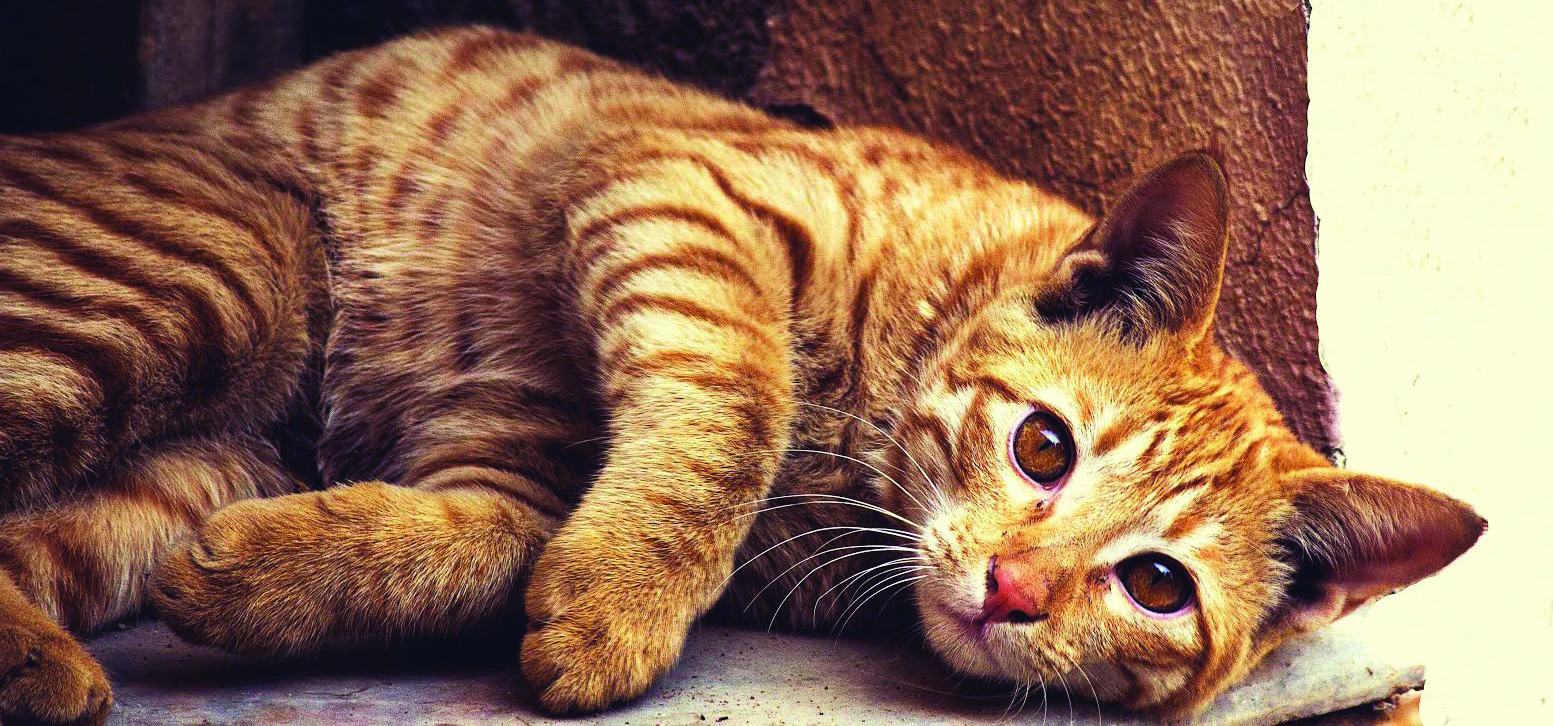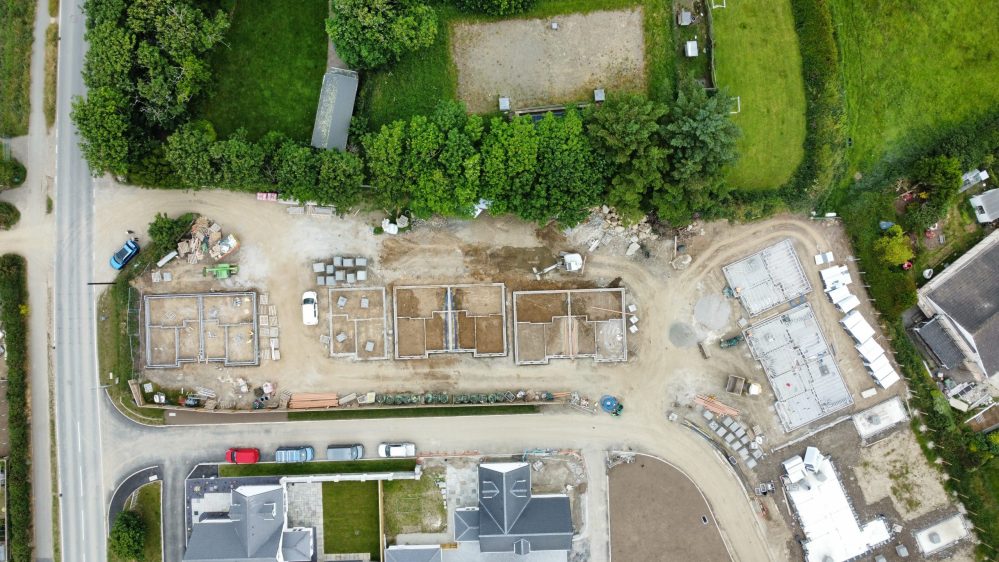News
Call for change: Air gun attacks on cats


46% of feline air gun shootings prove fatal: 78% of the public support the introduction of air gun licensing
A CALL for a change in legislation to restrict the sale and use of weapons has arisen following the distressing rise in fatal air gun attacks on cats.
Over 1,000 vets across the country, as well as 1,000 cat owners and 1,000 non-cat owners, were surveyed by Cats Protection, the leading feline welfare charity, which has sadly revealed that many more cats are killed today in gun-related attacks than 20 years ago.
The survey also revealed that a shocking 44% of vets questioned by the charity had treated cats within the past year which had been the victim of attacks by air-powered weapons, with a horrific 46% of these shootings proving fatal.
This research was undertaken by Cats Protection to mark the 20th anniversary since it first investigated the issue of air gun attacks.
In 1996, although 74% of vets had treated cats for air weapon attacks, just 11% of the feline victims passed away. Therefore, although attacks seem to be less common these days, they are far more likely to prove fatal.
The rise in fatal attacks suggests that more powerful air guns are being used. Injuries to the head and body are most common, with many cats left blind or partially sighted.
Cats Protection, vets and feline lovers alike are now calling on governments in England and Wales to officially make it a criminal offence to own an air gun without a licence or permit in a bid to reduce the number of cats who have to suffer from gun violence across the UK.
A leading criminologist states that many people who injure or shoot cats with air guns are worryingly far more likely to go on to commit similar crimes against humans.
Dr Adam Lynes, Criminologist and Lecturer at Birmingham City University, said: “There is an increasing body of research that examines the relationship between animal cruelty and the move towards attacking and murdering humans.
“It is argued that through the process of social learning theory, a theoretical framework in which criminal behaviour is learned, that some offenders will gain positive stimuli from engaging in animal cruelty which may lead to aggression towards humans. This is known as the ‘graduation hypothesis’.
“While it is acknowledged that a crime such as serial murder is incredibly rare, this relationship between animal cruelty and aggression towards humans may explain why some individuals commit acts of violence towards animals prior to attacking humans.”
Alongside this, nearly two-thirds of people surveyed believe that those who attack cats who go on to commit crimes against humans also, indicating a clear public concern.
More than three-quarters of vets indicated that air gun injuries were more frequently inflicted on cats than any other type of animal.
86% of vets agreed that they would like to see a change in the current laws to ultimately restrict the sale and use of air weapons, alongside 78% of the general public who would support the introduction of air gun licensing.
Jacqui Cuff, Cats Protection’s Advocacy Manager, said: “The sheer volume of instances where cats are injured and killed by air gun attacks is very concerning.
“We are calling for much stricter regulation on the ownership of air guns, as we strongly believe this will help to protect cats and other animals from these shocking attacks, and avoid air guns falling into the wrong hands.
“We want to see England and Wales following the example of Scotland, where from next year it will be illegal to own an air gun without a licence.
“The statistics show that fewer cats are now surviving air gun attacks than they were back in 1996.
“It is disconcerting that only a small percentage of the general public, 24%, would report these incidents to the police, and that 53% said they would do nothing. This could be due to a lack of confidence that the perpetrator will be found.
“Sadly, 78% of people who reported an air gun attack on their cat said the culprit was never caught.
“If any cat owners have lost their cat to an air gun attack in the last six months, we’d be grateful if they could send any details to [email protected]. uk. It will help Cats Protection to collect more evidence about the scale of these attacks and continue to raise the issue with politicians across the UK.”
In Pembrokeshire, one cat was fatally injured by an air gun in the north county village of Puncheston.
This stray feline, who was looked after by several homes, was the second cat to be killed in the village in less than a month, leading Lisa to believe that it was not an isolated incident.
Another cat was shot by an air gun in Milford Haven, with the pellet going straight through her neck and becoming lodged in her left shoulder, in an attack which she was lucky to survive.
Daisy the cat was then taken to All Pets Vet Care to remove the pellet, which cost her owners nearly £500.
Daisy has since recovered from the incident, but the usually confident cat now remains close to her owner’s side.
Recently making headlines at The Herald was the news that a group of teenagers from Milford Haven were shot at with an air rifle whilst on a walk.
Although extremely shaken up, no serious injuries were sustained but one of the boys was left with bruising to his chest after being hit by one of the shots.
PC Laurence Rew, investigating the case, said: “This was a very frightening situation for the group of teenagers who were targeted as they walked along the path.
“Air rifles are dangerous weapons if used incorrectly and can cause serious injury and even death.”
A survey which was conducted last year by the British Veterinary Association revealed that 41% of its members had previously treated cats who had wounds caused by air guns.
Cats Protection’s survey also indicated that a massive 88% of cat-wounding culprits were aged under 25.
Current gun laws state that young people under the age of 14 are able to use an air gun on private premises with the consent of the occupier of those premises as long as they are under the supervision of a person aged 21 or over.
People aged between 14 and 16 are allowed to borrow an air gun from a person aged 18 or over and use it on private property without supervision, indicating that laws need to be altered due to the 88% of cat injurers being aged under 25.
Sean Wensley, President of the British Veterinary Association, said: “These findings are concerning for both owners and vets.
“Anyone using an air gun, whether they are an adult or child, should be aware of the very serious injuries these weapons inflict.
“Vets see shocking injuries caused to cats by air guns, so we want to see better enforcement of animal welfare legislation and urge the police and local authorities to take action where they can.”
Community
Public reminded to stay away from Ward’s Yard and Criterion Quay

THE PORT of Milford Haven is reminding members of the public to stay away from Ward’s Yard in Milford Haven and Criterion Quay (sometimes known as the offshore jetty) in Pembroke Dock due to concerns over public safety.
Despite significant security measures, people continue to access the sites illegally, ignoring and sometimes damaging the onsite signage and fences.
Niall Yeomans, Head of Health, Safety and Security at the Port of Milford Haven said: “Safety is our key priority. Members of the public are continuously putting themselves and members of our team at risk of serious harm by trespassing in these areas.”
“Both Ward’s Yard and Criterion Quay are unsafe for public access. They are isolated areas next to deep water and are susceptible to slips, trips and falls.”
Both sites are owned by the Port of Milford Haven and are private property. Anyone found onsite without consent is trespassing, and any criminal damage could result in prosecution.
Anyone who sees any suspicious activity at Ward’s Yard or Criterion Quay is asked to contact Dyfed Powys Police on 101 urgently.
Crime
‘Sophisticated’ organised crime gang trafficked cocaine and cannabis to Aberystwyth

FIVE people have been found guilty or admitted to conspiring to supply cocaine and cannabis as Dyfed-Powys Police continues its efforts to dismantle organised crime gangs.
Officers seized cocaine with a street value of more than £400,000 from gang members, who continually changed tactics to avoid arrest.
Six defendants have appeared in court in the latest phase of Dyfed-Powys Police’s Operation Burleigh, which sought to disrupt the trafficking and onward supply of class A and B drugs into Aberystwyth, with all but one admitting their charges or being found guilty by a jury.
This brings the total number of people awaiting sentence under the operation to 15.
The court heard that officers from Dyfed-Powys Police’s Serious and Organised Crime Team and Ceredigion Priority Policing Team led the investigation into the OCG, which was described as ‘sophisticated, well-organised and evolving’.
Detective Sergeant Steven Jones said: “This conspiracy operated on a County Lines model, where controlled drugs are trafficked into a smaller rural town from a larger city, and the operation is controlled by one or more ‘drugs lines’.
“In this case there were a total of four lines controlling the supply of cocaine and cannabis within Aberystwyth.
“The conspirators frequently evolved their actions to frustrate the authorities and evade capture.”
The OCG embedded members were mainly asylum seekers brought to Aberystwyth by Toana Ahmad and another man who remains outstanding, with the sole purpose of dealing drugs. The drug lines were initially based in Swansea, and later in areas of Birmingham.
Three properties – on Terrace Road, Alexander Road and Parc Graig Glas – were identified early in the investigation as being used to house the OCG members embedded in Aberystwyth. Substantial amounts of cash, controlled drugs and weapons were recovered from these properties, and from the people found inside.
When arrests were made, the gang changed its tactics. Drugs began to be supplied from vehicles, and OCG members stayed in guest houses to avoid detection.
DS Jones added: “Trusted couriers were employed to transport drugs to Aberystwyth and cash back to Birmingham or Swansea. A number of vehicles, including taxis, were used as the gang attempted to avoid detection along the route, while trains were also taken when courier cars were stopped by officers.”
In June 2023, two vehicles travelling from the West Midlands towards Aberystwyth were stopped by police on consecutive days. A black sock was uncovered in the engine of the first car, which was found to contain 82g of high purity cocaine divided into 169 grip seal plastic bags.
Davinder Singh, who previously pleaded guilty to conspiracy to supply class A and class B drugs, was the driver of the second vehicle, which was a taxi. A blue plastic bag was seen falling out of his shorts, which contained over 81g of high purity cocaine divided into 167 grip seal bags.
DS Jones said: “On the basis that the amounts of cocaine transported over the 37 couriers over the course of the conspiracy period were similar, over 3kg of cocaine would have been conveyed to Aberystwyth from Birmingham.
“This equates to class A drugs with a potential street value of over £308,950. In addition to this, class A drugs were seized from individuals and addresses with a potential street value of £103,445, along with cash totalling £11,687.
“A number of teams and departments across Dyfed-Powys Police, from analysts, CCTV operators and priority policing teams, to CAB, the Technical Support Unit, Economic Crime Team and Force Intelligence Bureau all assisted in dismantling the OCG from top to bottom.
“Their dedication and relentless efforts have assisted in making Aberystwyth a safer place to live without the threat and harm of drugs being made easily available on the street.”
After a seven-week trial at Swansea Crown Court earlier this year, the following three defendants were found guilty for their parts in the conspiracy:
- Toana Ahmad, aged 33, of Lee Gardens in Smethwich, West Midlands
- Barzan Sarhan, aged 31, of no fixed address
- Ahmed Piro, aged 26, of no fixed address
The jury failed to reach a verdict on two defendants during the earlier trial. They have been subject to a retrial starting on July 1, with the following outcomes:
- Hawre Ahmed, aged 35, of Pinderfields Road, Wakefield, West Yorkshire, was found guilty by the jury of conspiracy to supply Class A and B controlled drugs.
- Diar Yousef Zeabari, aged 35, of Flat 5, 41 Bryn Road, Swansea, was found not guilty of conspiracy to supply Class A and B controlled drugs.
Karwan Karim, aged 39 of 125 Griffith John Street, Swansea, also stood trial, and pleaded guilty to conspiracy to supply Class A and B controlled drugs on day three.
In addition to the OCG members found guilty during the most recent trials, the following have previously pleaded guilty to charges of conspiracy to supply class A and class B drugs under Operation Burleigh:
- Davinder Singh, aged 36, of Huntingdon Road, West Bromwich
- Daban Khalil, aged 23, of Streetly Road, Birmingham
- Kastro Omar, aged 30, of Junction Road, Northampton
- Karwan Jabari, aged 26, of Weedon Close, Northampton
- Walid Younis Abdal, aged 34, of St Anne’s Road, Doncaster
- Saman Aziz, aged 41, of Kirk Road, Merseyside
- Adel Mustafa, aged 39, of Hubert Road, Newport
- Charlotte Roberts, aged 21, of Sutton Hill, Telford
The following have previously pleaded guilty to conspiracy to supply class A drugs:
- Akasha Smith, aged 24, of Third Avenue, Aberystwyth
- Luqman Jarjis, aged 21, of Wake Green Road, Birmingham
News
Community asked for views on allocation of new St Davids homes

THE FIRST phase of Pembrokeshire County Council’s Glasfryn housing development in St Davids is progressing well with the second phase also underway.
The development being built by GRD Homes Ltd, began in November 2023, with a first phase completion date of Winter 2024 looking hopeful, ahead of the scheduled plans.
The first phase consists of seven properties, including a mixture of one and two bedroom bungalows
As completion draws closer the properties will be advertised via Pembrokeshire Choice Homes.
Ahead of this, the Council’s housing team will be holding community engagement on the 13th August 2024 at the Ty’r Pererin Centres, Quickwell Hill, St Davids, SA62 6PD, 5pm-7pm.
This will be a chance for officers to liaise with the local community about the allocation process for these properties.
Glasfryn’s second phase is well underway, with the initial groundwork already completed. This phase includes a further 11 two bedroom bungalows, with a completion date in late 2025.
These bungalows will meet the latest Welsh Government’s Development Quality Requirement, and will be energy efficient, built to EPC A specification and include solar panels to help tenants with running costs.
The Glasfryn development is funded in partnership with Welsh Government.
Cabinet Member for Housing Cllr Michelle Bateman said: “We are really keen to work with the community on a local lettings policy for these new properties, as we have done for our developments in other parts of the County.”
If you have any queries please email the Customer Liaison Team on [email protected], phone them on 01437 764551, or visit Housing’s Facebook page.
-

 Education5 days ago
Education5 days agoMilford Tesco worker achieves Oxford dream and lands top legal job
-

 Crime4 days ago
Crime4 days agoHaverfordwest man admits having nearly 1000 child and animal images
-

 Crime4 days ago
Crime4 days agoYouth set to appear in court over serious sexual offences
-

 Crime4 days ago
Crime4 days agoPolice investigating after man injured during altercation in cemetery
-

 Education4 days ago
Education4 days agoPupils delight in ice cream treat from Pembrokeshire’s number one van
-

 Crime4 days ago
Crime4 days agoTown centre ‘stinking of skunk’ as police strip cannabis farm
-

 Crime3 days ago
Crime3 days agoFag-butt police court summonses spark debate in Pembrokeshire
-

 News6 days ago
News6 days agoProposal to give firefighters a council tax discount to go to Cabinet































